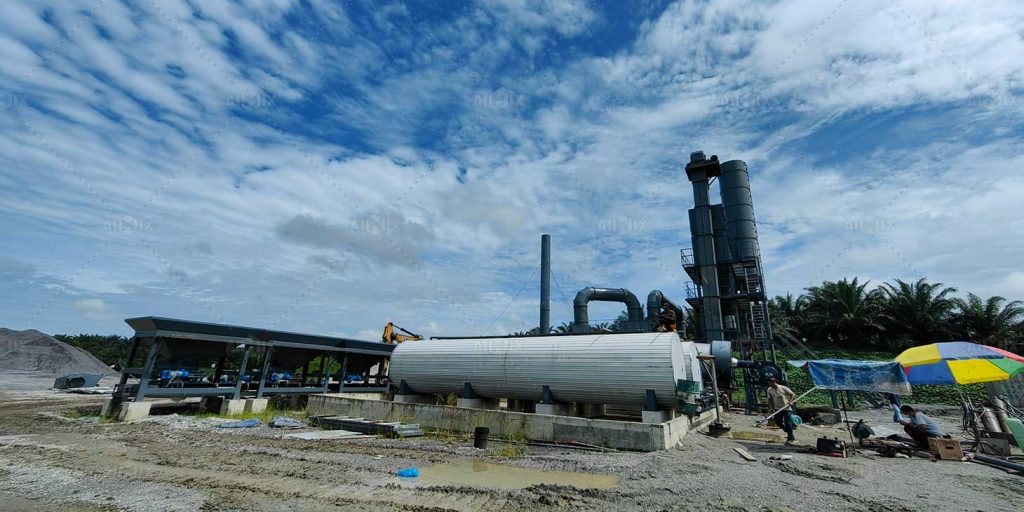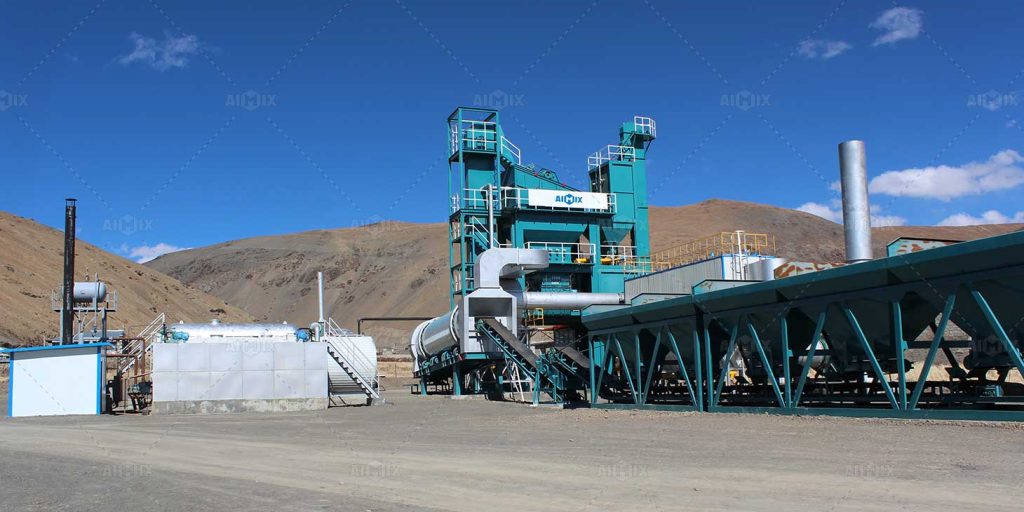The world we navigate today rests on the foundation of modern infrastructure, with asphalt playing an essential role in our roads, highways, and runways. As we embark on a journey to comprehend the intricacies of asphalt production, we uncover a realm of diverse types, each with its own unique properties, applications, and challenges.
Types of Asphalt
Hot Mix Asphalt (HMA)
The beating heart of many roadways, Hot Mix Asphalt (HMA) stands as a testament to engineering precision. A symphony of aggregates, bitumen, and additives, Hot asphalt mix plant undergoes meticulous heating and mixing to create a composite that withstands the test of time. This amalgamation yields roads that can brave heavy traffic and fluctuating weather conditions, exemplifying its prowess in various applications. However, the challenge lies in its maintenance, as rigorous wear and tear necessitate periodic rejuvenation.

Warm Mix Asphalt (WMA)
Amid growing environmental concerns, Warm Mix Asphalt (WMA) emerges as a sustainable alternative. By lowering the production temperature, not only are carbon emissions reduced, but energy consumption also diminishes. The introduction of additives further refines the mix, yielding a product that exhibits comparable performance to HMA while boasting enhanced workability. Yet, considerations regarding long-term durability and compatibility with existing infrastructure must be weighed.
Cold Mix Asphalt (CMA)
In corners where conventional methods falter, Cold Mix Asphalt (CMA) finds its calling. Operating at ambient temperatures, this type sidesteps the energy-intensive heating process. Primarily used for patching and maintenance, its pliable nature enables quick fixes even in unfavorable weather. However, the trade-off lies in its relatively lower strength and durability, making it more suitable for temporary solutions. Learn more asphalt plant information here: https://aimixasphaltplant.com/

Modified Asphalt
Polymer-Modified Asphalt
Enter the world of Modified Asphalt, where science and engineering converge to elevate asphalt’s properties. Polymer-Modified Asphalt, a frontrunner in this domain, introduces synthetic polymers into the mix. The result? Enhanced elasticity, improved fatigue resistance, and heightened durability. From heavily trafficked roads to racetracks, this blend extends the life of pavements, ensuring enduring performance.
Rubber-Modified Asphalt
In a bid for sustainability, Rubber-Modified Asphalt production by small portable asphalt plant in AIMIX embraces recycled tires as a transformative ingredient. With a focus on noise reduction, this type harmonizes environmental responsibility with engineering innovation. However, the path to rubber integration presents challenges in terms of compatibility and uniform distribution, as well as concerns about microplastic release.
Fiber-modified Asphalt
Asphalt fortified with fibers brings about a new era of structural resilience. The infusion of various fibers – natural or synthetic – bolsters crack resistance, reduces rutting, and enhances longevity. This innovation finds its stride in heavy-duty pavements and overlays, securing infrastructure against the ravages of time and traffic.
Quality Control and Best Practices
Raw Material Selection
The bedrock of quality asphalt production rests on judicious raw material selection. Aggregates that ensure proper gradation, bituminous binders that complement the mix, and additives that fine-tune characteristics – all play pivotal roles. The synergy of these components determines the mix’s performance and endurance.
Mixing and Compaction
Mixing and compaction orchestrate the transformation of raw materials into a cohesive whole. Optimal temperatures, precise timing, and adept techniques converge to create a uniform mix that meets density requirements. The result? A well-compacted pavement that thrives under the weight of vehicular loads and environmental pressures.
Testing and Evaluation
The road to excellence is paved with rigorous testing and unwavering evaluation. Performance tests scrutinize various parameters – from stability to moisture susceptibility – ensuring compliance with industry standards. Quality assurance practices underpin the integrity of the asphalt, guaranteeing that it upholds its promise on the asphalt-laden journey ahead.
Conclusion
As we traverse the evolving landscape of asphalt production, we bear witness to a symphony of innovation and tradition. The types of asphalt produced by asphalt batch plant for sale, each with their distinct attributes, whisper tales of challenges surmounted and horizons expanded. As we navigate the roads of tomorrow, armed with the knowledge of these diverse asphalt types, we are better equipped to build a resilient and enduring infrastructure for generations to come.